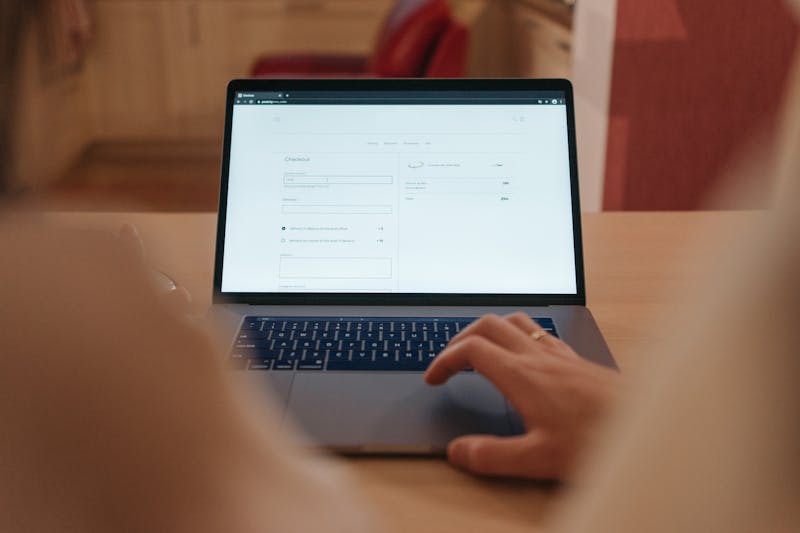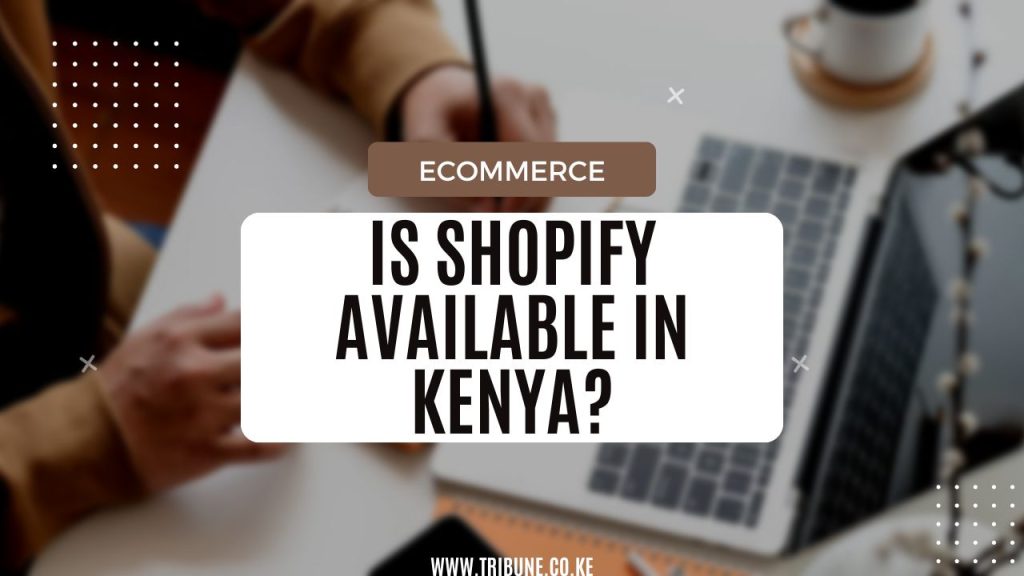The e-commerce landscape in Kenya has seen remarkable growth, with more businesses looking for ways to expand their presence online.
Entrepreneurs and business owners are exploring various platforms to help them tap into the booming digital marketplace. Among the e-commerce platforms, shopify consistently comes up as a top choice for setting up and managing an online store.
But how suitable is this platform for Kenyan businesses? What tools and features does it offer to help businesses succeed in the local market, and how can Kenyan entrepreneurs leverage it for their ventures?
Let’s find out!
What is Shopify?
Shopify is a comprehensive e-commerce platform allowing individuals and businesses to set up an online store, manage products, process orders, and offer services globally.
It simplifies the technical side of running an online store, offering templates, payment integration, inventory management, marketing tools, and more.
Whether you are a small startup or a well-established business, Shopify caters to various needs by providing scalable solutions.
Is Shopify Available in Kenya?
Yes, Shopify is available in Kenya!
Shopify, a global e-commerce platform, has gained traction in Kenya as more businesses and entrepreneurs embrace online selling.
Why is Shopify Gaining Popularity in Kenya?
Kenya is quickly becoming a hub for e-commerce and online entrepreneurship, driven by technological advancements, widespread internet access, and the increasing demand for digital solutions.
Shopify’s ease of use, scalability, and the wide range of tools it offers for building and managing an online store make it an attractive option for Kenyan business owners.
Moreover, Shopify supports various payment gateways, including those commonly used in Kenya like M-Pesa and credit cards, which makes it even more appealing to local merchants.
With the global rise in online shopping, many Kenyan entrepreneurs are turning to Shopify to tap into local and international markets.
7 Benefits of Using Shopify in Kenya
Before diving into the step-by-step process of setting up a Shopify store in Kenya, let’s explore why Shopify is a great choice:
1. Ease of Use
Shopify’s platform is user-friendly and doesn’t require technical expertise. Its drag-and-drop features make it simple for anyone to design and manage an online store.
2. Wide Range of Templates
Shopify offers a variety of professional templates that can be customized to reflect your brand. Whether you are selling clothing, electronics, or services, you’ll find a design that suits your needs.
3. Payment Gateway Integration
Shopify supports various payment methods, including Kenya’s popular mobile payment system, M-Pesa, and international payment options like PayPal, credit cards, and Stripe. This makes it easier for local businesses to reach both Kenyan and international customers.
4. Secure and Reliable
Shopify ensures that transactions on your site are secure with SSL certificates and offers reliable hosting with 99.9% uptime. This security builds trust with your customers and guarantees smooth operations.
5. Scalability
Shopify grows with your business. Whether starting small or scaling up to reach international markets, Shopify offers features to support that growth.
6. 24/7 Customer Support
Shopify offers customer support via phone, live chat, and email. Additionally, their extensive help center is full of tutorials, guides, and community forums to help you navigate any issues.
7. Multiple Sales Channels
With Shopify, you can sell on multiple platforms like Facebook, Instagram, and even offline through Shopify POS (Point of Sale), making it easier to expand your sales reach.
Step-by-Step Guide to Setting up Shopify in Kenya
Setting up Shopify in Kenya is straightforward. Here’s a detailed guide to help you start selling online:

1: Create a Shopify Account
Go to www.shopify.com to begin the sign-up process.
On the homepage, click the “Start Free Trial” button. Shopify offers a 3-day free trial to test the platform before committing to a paid plan.
You will be asked to enter your email address, a secure password, and the store name.
Complete the sign-up process by filling in your details, including the type of products or services you intend to sell and whether you already have a business running.
2: Customize your online Store
Shopify offers free and paid themes to help you design your online store. Browse through the available options and select a theme that suits your brand.
The next step is to customize your store. Use Shopify’s easy-to-use tools to customize the theme. You can add your brand logo, change colors, edit fonts, and configure the layout to match your style.
Add products to your store by uploading images of your products, writing descriptions, setting prices, and categorizing them. Shopify’s inventory system makes it easy to keep track of your stock levels.
3: Set up Payments
Shopify supports multiple payment methods, including international and local payment options like PayPal, M-Pesa, and credit cards. Enable your preferred payment gateways.
Notably, M-Pesa is a popular mobile payment option in Kenya. To integrate M-Pesa into your store, use payment gateways like Pesapal, Flutterwave, or PayGate that support M-Pesa transactions. Configure the gateway by following their setup instructions within the Shopify admin panel.
Before going live, make sure to test your payment options to ensure everything is working smoothly.
4: Set up Shipping
Set your shipping rates based on the regions you plan to deliver to.
Shopify allows you to offer flat rate, weight-based, or location-based shipping.
You can also add local delivery options using courier services in Kenya ensuring that your delivery options are reliable and efficient.
5: Launch Your Store
Before launching, review your store to ensure everything is in place – from product descriptions to payment integrations and shipping configurations.
As the trial period expires, choose a Shopify plan that fits your business needs. Shopify offers several pricing plans, including the Basic plan, Shopify plan, and Advanced Shopify plan.
Once you’ve chosen a plan and are satisfied with your store setup, hit the launch button and start selling!
Payment Options for Shopify in Kenya
One of the considerations for Shopify users in Kenya is how to handle payments. Here are the payment options available:

- M-Pesa
The mobile payment service is widely used in Kenya and it can be integrated via gateways like Pesapal and Flutterwave.
2. Credit/Debit Cards
Shopify supports major card providers such as Visa, Mastercard, and American Express, ensuring that you can accept international payments.
3. PayPal
PayPal is also a popular option, especially for businesses looking to target international customers.
Shopify’s Reach in Kenya
Shopify is steadily gaining a foothold in Kenya as more businesses recognize the potential of e-commerce.
Local Shopify stores are emerging across various industries, including fashion, electronics, cosmetics, and even local art. Shopify’s flexibility allows businesses to cater to both local and global customers.
Some of the top Shopify stores in Kenya offer products ranging from local crafts to electronics and have successfully tapped into the international market by integrating efficient payment solutions and logistics services.
Conclusion
Shopify is not only available in Kenya but also offers a comprehensive solution for local businesses looking to establish an online presence. With its robust features, ease of use, and support for local payment options like M-Pesa, Shopify is a game-changer for Kenyan entrepreneurs seeking to reach a broader audience.
If you’re looking to take your business online, Shopify provides everything you need to build and scale your e-commerce venture, whether you’re targeting customers in Kenya or abroad. From easy setup to secure transactions, Shopify’s platform makes e-commerce accessible to everyone in Kenya.


